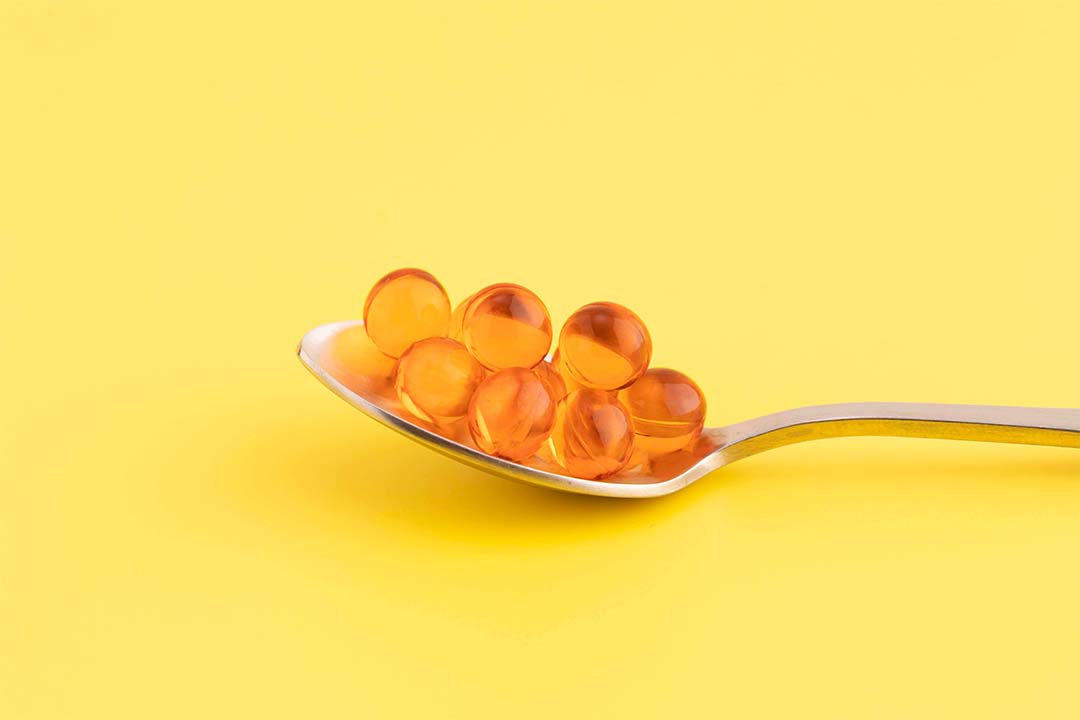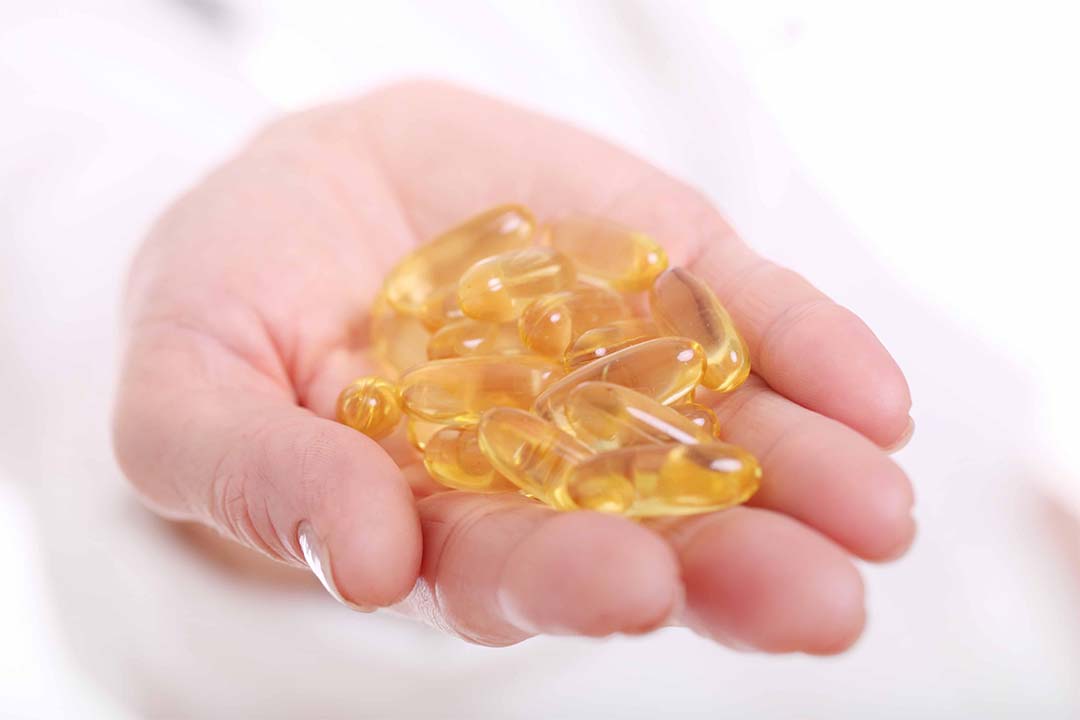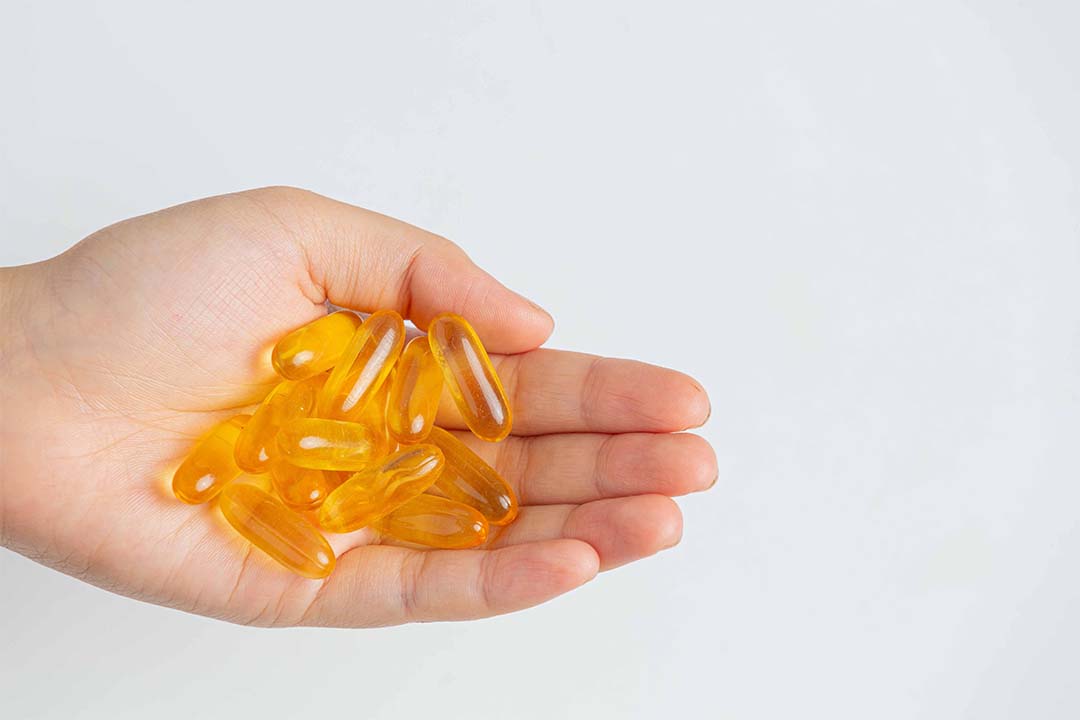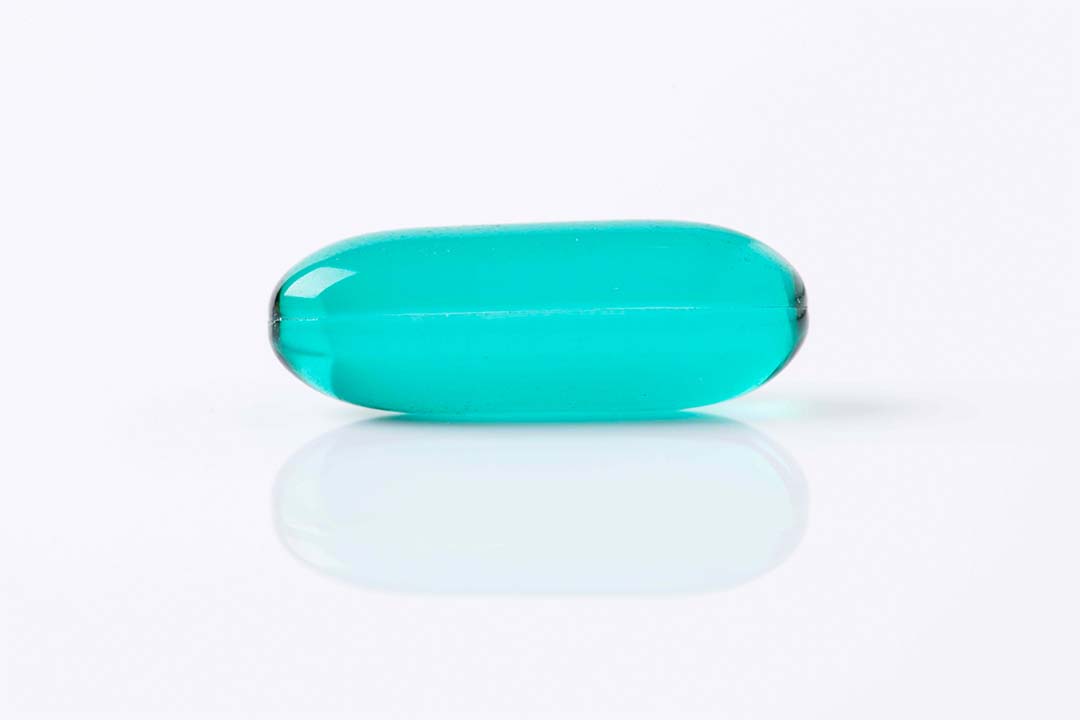Capatavis Biocare is an expert in dealing with complex & modified formulations. Our capable formulation team understands your requirements and develops a product as per your needs within the shortest time. We also guide on sourcing best raw materials, and have the technology to maintain the most efficient size of capsule.

elatin Shell: The outer shell of a softgel is typically made from gelatin, a substance
derived from animal collagen. Gelatin helps create a smooth and flexible casing for the
contents inside.
• Liquid or Semi-Liquid Contents: Softgels are particularly suitable for delivering
substances that are not easily compressed into a solid tablet or capsule. Common
contents include oils, vitamins, minerals, and other liquid or semi-liquid formulations.
• Easy Swallowing: The soft and smooth texture of softgels makes them easy to
swallow, which can be beneficial for people who have difficulty taking traditional
tablets or capsules.
• Improved Bioavailability: Some substances, particularly fat-soluble vitamins and
certain drugs, may have better bioavailability when encapsulated in a softgel form. The
gelatin shell can enhance the absorption of these substances in the body.
• Protective Casing: The gelatin shell provides protection for the contents,
helping to prevent degradation from environmental factors such as light and oxygen.
• Customization: Softgels can be customized in terms of size, shape, and color,
which can help in branding and product differentiation.

• Ingredients: Vegetarian softgels are typically made using plant-based
ingredients.
• Vegetarians and Vegans: Vegetarian softgels are suitable for both vegetarians and
vegans.
• Gelatin-Free: Traditional softgels are made with gelatin, which is derived from
animal collagen. Vegetarian softgels offer an alternative for individuals who avoid
animal products.
• Size and Shape: Available in various sizes, shapes and colors.
• Halal and Kosher Friendly: Vegetarian softgels are generally considered halal and
kosher friendly.
• Temperature: Store vegetarian softgels in a cool, dry place.
• Applications: used for various purposes, such as dietary supplements, medication,
and cosmetic products.
• Advantages: Suitable for vegans and vegetarians, Non GMO, Poligeenan-free, easily
absorbed by the body.
• Reduced Allergen Risk: Vegetarian softgels can be a suitable alternative for
individuals with gelatin allergies or sensitivities.
We have the competency to manage small and bulk requirements. All our
products are manufactured on production line based on FDA quality & standards.
To emphasise & maintain your brand, we commit to provide remarkable products like- soft gel
capsules of nutraceuticals and supplements, as per your requirements.

Vitamin A- is a fat-soluble vitamin that is essential for various bodily
functions. It
plays a crucial role in maintaining good vision, a healthy immune system, and proper
functioning of the heart, lungs, kidneys, and other organs. There are two primary forms
of vitamin A: 1). Retinoid 2). Carotenoid.*
Vitamin B- is not a single vitamin but a complex of eight different B vitamins,
often
referred to collectively as the B-complex vitamins. These vitamins play various
essential roles in maintaining good health and are involved in numerous bodily
functions. Here's a brief overview of the eight B vitamins: ( B1, B2, B3, B5, B6, B7,
B9, B12).*
Vitamin C- also known as ascorbic acid, is a water-soluble vitamin that is
essential for
various bodily functions. It is known for its antioxidant properties and plays a crucial
role in maintaining good health.*
Vitamin D- is a fat-soluble vitamin that plays a crucial role in several
important
bodily functions. It is often referred to as the "sunshine vitamin" because the primary
source of vitamin D for most people is exposure to sunlight. some key aspects of vitamin
D:( Calcium and Bone Health, Immune System Support, Cell Growth and Regulation, Mood and
Mental Health, Heart Health).*
Vitamin E- is a fat-soluble antioxidant vitamin that plays a crucial role in
protecting
cells and tissues from damage caused by free radicals and oxidative stress. some key
aspects of vitamin E:( Skin and Hair Health, Immune System Support, Heart Health, Eye
Health, Cognitive Function).*
Vitamin K (K1 & K2)- is a fat-soluble vitamin that plays a crucial role in blood
clotting, bone metabolism, and cardiovascular health. There are two primary forms of
vitamin K: vitamin K1 (phylloquinone) and vitamin K2 (menaquinone).*
Calcium- Calcium is an essential mineral that is vital for various functions in
the
body. It is most commonly associated with its role in maintaining strong bones and
teeth, but calcium plays many other important roles as well. some key aspects of
calcium(Muscle Function, Nerve Function, Blood Clotting, Cell Signalling, Hormone
Secretion).*
Magnesium- Magnesium is an essential mineral that plays a supportive role in
various
physiological processes within the human body. It is involved in more than 300 enzymatic
reactions, making it vital for overall health. some key aspects of magnesium: (Energy
Production, Muscle Function, Nervous System Function, Bone & Heart Health, Blood Sugar
Control, DNA and RNA Synthesis, Immune System Support). *
Iron- Iron is an essential mineral that plays a vital role in various bodily
functions.
It is perhaps best known for its role in carrying oxygen throughout the body as a key
component of haemoglobin, the protein found in red blood cells. some key aspects of
iron: (Oxygen Transport, Red Blood Cell Formation, Energy Production, Immune System
Support, Metabolism).*
Zinc- Zinc is an essential mineral that is involved in numerous important
functions in
the body. It is required for the proper growth, development, and maintenance of a
healthy body. Here are some key aspects of zinc: (Immune Function, Wound Healing, Enzyme
Function, Reproductive Health, and Skin Health).*

Astaxanthin- Astaxanthin is a naturally occurring carotenoid pigment found in
various
microorganisms, plants, and animals. It is known for its powerful antioxidant properties
and is commonly consumed as a dietary supplement. some key aspects of astaxanthin:
(Antioxidant Properties, Skin Health, Eye Health, Cardiovascular Health, Exercise and
Athletic Performance).*
*These statements have not been evaluated by the Food and Drug Administration. These
products are not intended to diagnose, treat, cure or prevent any disease.

Coenzyme Q10, often abbreviated as CoQ10, is a naturally occurring antioxidant
that
plays a crucial role in energy production within cells. It is found in the mitochondria,
which are the energy-producing centers of cells. Here are some potential benefits
associated with Coenzyme Q10: *( Cellular Energy Production, Antioxidant Properties,
Heart Health, Anti-Inflammatory Effects, Neuroprotective Effects, Improved Exercise
Performance).*
*These statements have not been evaluated by the Food and Drug Administration. These
products are not intended to diagnose, treat, cure or prevent any disease.

Herbals and botanicals, including various plants and plant extracts, have been
used for
centuries in traditional medicine systems around the world. These substances contain a
diverse array of compounds that may offer various health benefits. It's important to
note that the efficacy and safety of herbal remedies can vary, and not all claims have
robust scientific support. Here are some potential benefits associated with certain
herbals and botanicals:*
1. Anti-Inflammatory Properties:
• Turmeric (Curcumin): Known for its anti-inflammatory and antioxidant properties,
curcumin may help reduce inflammation and support joint health.*
2. Cognitive Health:
• Ginkgo Biloba: Some studies suggest that ginkgo biloba may have
cognitive-enhancing
effects and could be beneficial for memory and concentration.*
3. Digestive Health:
• Peppermint: Peppermint oil may help alleviate symptoms of indigestion and
irritable
bowel syndrome (IBS) by relaxing the muscles of the gastrointestinal tract.*
4. Stress and Anxiety Reduction:
• Ashwagandha: An adaptogenic herb, ashwagandha is believed to help the body manage
stress and reduce anxiety. It may also have anti-inflammatory and immune-modulating
effects.*
5. Immune Support:
• Echinacea: Often used to support the immune system, echinacea may help reduce the
duration and severity of colds.*
6. Sleep Aid:
• Valerian Root: Valerian is commonly used as a natural remedy for sleep disorders.
It
may help improve sleep quality and reduce the time it takes to fall asleep.*
7. Cardiovascular Health:
• Garlic: Garlic is associated with potential cardiovascular benefits, including
blood
pressure regulation and cholesterol reduction.*
8. Antioxidant Support:
• Green Tea: Rich in antioxidants, green tea is associated with various health
benefits,
including cardiovascular support and potential cancer-preventive properties.*
9. Anti-Anxiety and Relaxation:
• Chamomile: Chamomile is known for its calming effects and is often used to
promote
relaxation and reduce anxiety.*
10. Liver Health:
• Milk Thistle: Milk thistle is believed to have liver-protective properties and
may be
used to support liver function.*
*These statements have not been evaluated by the Food and Drug Administration. These
products are not intended to diagnose, treat, cure or prevent any disease.*

Fish Oils
Fish oil, derived from the tissues of oily fish like salmon, mackerel,sardines, tuna,
white fish, herring is rich in omega-3 fatty acids, specifically eicosapentaenoic acid
(EPA) and docosahexaenoic acid (DHA). These omega-3 fatty acids offer a range of health
benefits. Here are some key advantages associated with fish oil:*( Heart Health, Brain
Health, Inflammation Reduction, Joint Health, Eye Health, Skin Health, Reduced Risk of
Chronic Diseases, Improved Sleep).*
Omega 3-6-9
Omega-3, omega-6, and omega-9 are types of fatty acids, each with its own set of
potential health benefits:*( Cardiovascular Health , Brain Health, Joint Health, Eye
Health, Inflammation Reduction, Joint and Skin Health, Heart Health).*
Krill Oils
Krill oil is a dietary supplement that is rich in omega-3 fatty acids, particularly
eicosapentaenoic acid (EPA) and docosahexaenoic acid (DHA). Krill are small, shrimp-like
crustaceans found in the oceans, and the oil extracted from them has gained attention
for its potential health benefits. Here are some potential benefits associated with
krill oil:*( Cardiovascular Health , Brain Health, Joint Health, Eye Health,
Inflammation Reduction, Joint and Skin Health, Heart Health, Improved Mood).*
Borage, Black Currant, Evening Primrose Oils
Borage oil, black currant oil, and evening primrose oil are plant-based oils rich in
gamma-linolenic acid (GLA), an omega-6 fatty acid. GLA is known for its potential health
benefits. Here are some of the potential benefits associated with these oils:*( Skin
Health, Anti-Inflammatory Effects, Hormonal Balance, Cardiovascular Health, Nerve
Function, Eye Health, Immune System Support).
Flaxseed Oil
Flaxseed oil is derived from the seeds of the flax plant (Linum usitatissimum) and is
rich in alpha-linolenic acid (ALA), an omega-3 fatty acid. Here are some of the
potential benefits associated with these oils: (Heart Health, Anti-Inflammatory Effects,
Brain Health, Skin Health, Digestive Health, Weight Management, Hormonal Balance).*
Pumpkin seed oil
Pumpkin seed oil is a type of vegetable oil that is extracted from the seeds of pumpkins
(Cucurbita pepo). It is rich in various nutrients, including essential fatty acids,
antioxidants, vitamins, and minerals.*
Coconut Oil
Coconut oil is a versatile oil that has gained popularity for its potential health
benefits and various uses. Here are some of the potential benefits associated with
coconut oil:*( Heart Health, Weight Management, kin and Hair Care).*
*These statements have not been evaluated by the Food and Drug Administration. These
products are not intended to diagnose, treat, cure or prevent any disease.

Lecithin is a fatty substance that is essential for the cells of the human body. It is
composed of phospholipids, including phosphatidylcholine, phosphatidylethanolamine,
phosphatidylinositol, and other related compounds. Lecithin is commonly derived from
sources such as soybeans, sunflower seeds, and egg yolks. Here are some potential
benefits of lecithin:*( Brain Function, Cholesterol Metabolism, Liver Health, Digestive
Support, Skin Health, Cardiovascular Health, Anti-Inflammatory Properties).*
Phytosterols
Phytosterols, also known as plant sterols, are natural compounds found in the cell
membranes of plants. They have a structure similar to cholesterol and are known to
provide various health benefits. Here are some potential benefits of phytosterols:*(
Cholesterol-Lowering Effects, Cardiovascular Health, Anti-Inflammatory Properties,
Prostate Health, Immune System Support, Antioxidant Properties, Blood Sugar
Regulation).*
Phosphatidylserine
Phosphatidylserine (PS) is a phospholipid and a component of cell membranes,
particularly abundant in the brain. It plays several important roles in cellular
structure and function. Here are some potential benefits of phosphatidylserine:*(
Cognitive Function, Stress Reduction, ADHD Support, Neuroprotection, Cellular
Integrity).*
Natto
Natto is rich in nutrients and contains various bioactive compounds, providing several
potential health benefits. Here are some of the benefits associated with the consumption
of natto:*( Probiotic Properties, Cardiovascular Health, Bone Health, Improved Blood
Circulation).*
Pregnenolone
Pregnenolone is a steroid hormone that serves as a precursor to various other hormones
in the body, including progesterone, estrogen, testosterone, and cortisol. It is
produced naturally in the body, primarily in the adrenal glands, liver, skin, and
brain.*
DHEA (dehydroepiandrosterone)
Dehydroepiandrosterone (DHEA) is a hormone produced by the adrenal glands, and it serves
as a precursor to several other hormones, including testosterone and estrogen. While
DHEA levels naturally decline with age, leading some to explore the potential benefits
of supplementation, it's important to note that the use of DHEA as a supplement is a
topic of ongoing research, and its effects can vary among individuals. Here are some
potential benefits associated with DHEA:*( Hormonal Support, Bone Density, Mood and
Depression).*
GABA (gamma aminobutyric acid)
Gamma-aminobutyric acid, or GABA, is a neurotransmitter that plays a crucial role in the
central nervous system by inhibiting or reducing neuronal activity.*
CLA (conjugated linoleic acid)
Conjugated linoleic acid (CLA) is a type of polyunsaturated fatty acid that occurs
naturally in meat and dairy products, particularly from grass-fed animals. Here are some
potential benefits associated with CLA:*( Muscle Mass, Metabolic Health, Cardiovascular
Health, Bone Health).*
Turmeric
• Turmeric (Curcumin): Known for its anti-inflammatory and antioxidant properties,
curcumin may help reduce inflammation and support joint health.*
Glucosamine / Chondroitin
Glucosamine and chondroitin are commonly used dietary supplements that are often taken
together to support joint health, particularly in the context of osteoarthritis.*
*These statements have not been evaluated by the Food and Drug Administration. These
products are not intended to diagnose, treat, cure or prevent any disease.